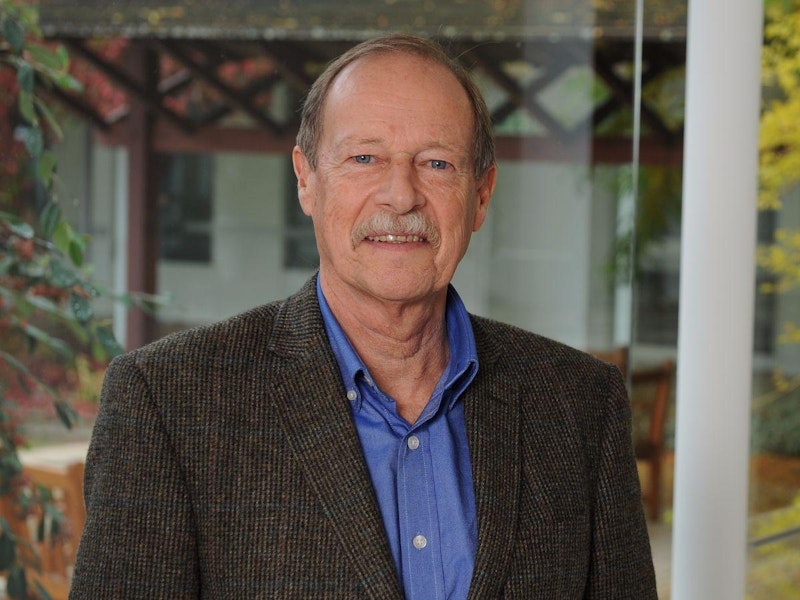Being a Positive Force in Leadership
This is a precis of an article by Graham Louden-Carter, Executive Fellow in Executive Education
at Henley Business School.

Positive psychology and positive organisational scholarship
For many years there has been a shift in organisational thinking and academic writing, from a focus on identifying and correcting the things that are wrong in organisations to identifying, understanding and maximising the potential of the things that work and are right.
The rapid growth of positive psychology has fuelled this and what began as the study of positive emotion and was nicknamed ‘the science of happiness’ has been adopted by business schools and organisations.
Positive psychology emerged in 1998 after the then-president of the American Psychological Association, Martin Seligman, criticised the focus and performance of psychology because it had neglected the study and application of the things that make life worth living. The time had come, he suggested, for a positive psychology that focused on what was right with people, including happiness, well-being and human strengths.
The focus on happiness extended into the work and organisational context as well. Various books, articles and research studies have looked at the effects of happiness and its role in maximising performance and achieving potential.
Positive leadership
Kim Cameron is one of the pioneers of the positive organisational scholarship discipline. He seeks to identify and explain strategies that can help leaders achieve extraordinary effectiveness, spectacular results and ‘positively deviant’ performance.
Positive leaders are unusual, in his view, in that they ‘choose to emphasise the uplifting and flourishing side of organisational life, even in the face of difficulty – they counter the tendency toward negativity with an abundance of positivity’ (Cameron, 2013).
Nevertheless, he recognises that for positive leaders to focus on positive deviance does not mean that they ignore non-positive conditions or situations when mistakes or problems are present; indeed, the best human and organisational attributes are exposed only when confronting obstacles or detrimental circumstances. Cameron highlights three areas of focus of positive leadership:
1. A focus on positively deviant performance that exceeds the norm
2. A bias or orientation toward strengths rather than weaknesses, optimism rather than pessimism, supportive rather than critical communication
3. A focus on virtuousness, or the best of the human condition.
Leveraging strengths
Alex Linley, a psychologist who is an author and international speaker on strengths and positive psychology, highlights recent research on positive psychology that shows the potential benefits of using your strengths.
He summarises these by indicating that people who optimise their strengths are happier, more confident, have higher levels of self-esteem, energy and vitality. They also experience less stress, are more resilient, are more likely to achieve their goals, are more engaged at work and are more effective at developing themselves as individuals.
He highlights five fundamentals of the strengths approach:
1. A focus on what is right, what is working and what is strong.
2. Strengths are part of our human nature, therefore every person in the world has strengths and deserves respect for their strengths.
3. Our areas of greatest potential are in the areas of our greatest strengths.
4. We succeed by fixing our weaknesses only when we are also making the most of our strengths.
5. Using our strengths is the smallest thing we can do to make the biggest difference.
Linley encourages us to catch ourselves when we slip into focusing on the negative, to take off ‘the critical, evaluative spectacles that we tend to wear’.
Analysing your best self
The Reflected Best Self Exercise™, developed at the University of Michigan Ross School of Business, has been used by participants on the Henley Leadership Programme for a number of years now, providing them with powerful and valuable current feedback about how people experience them when they are at their best.
Participants identify 10-20 people they know well – colleagues, friends, family members, customers or anyone with whom they have had extended contact – then ask each of them to write three short anecdotes about them at their very best.
While they may feel uncomfortable initially asking for this kind of feedback, it is worthwhile, because the power and impact of the feedback they receive is significant, boosting their self-confidence, as well as identifying some areas of strengths they may not have been aware of.
This catalogue of competences is a living, breathing portrait of the positive impact people have on others and their surroundings, and will help to identify strategies for capitalising on personal strengths which, in turn, will help to create a constructive experience for others. The additional benefit of this process is that it strengthens relationships with the feedback-givers.
Final thoughts
For all of us, when we do find the strengths that make us feel good, we take an important step towards being more productive and fulfilled.
But how do we ensure that, as leaders, we create the conditions that enable others to succeed? I always asked myself if I knew what the individual ‘genius’ of each of my colleagues was – their distinctive capabilities and strengths – and also whether I was leveraging their ‘genius’ as a leader.
The final word goes to Kim Cameron (2008), who suggests that positive leaders can enable extraordinary performance by fostering the following:
- a positive work climate – where positive emotions predominate over negative emotions in the workplace;
- positive communication – when affirmative and supportive language replaces negative and critical language;
- positive meaning – when people feel that they are pursuing a profound purpose or work that is personally important.
